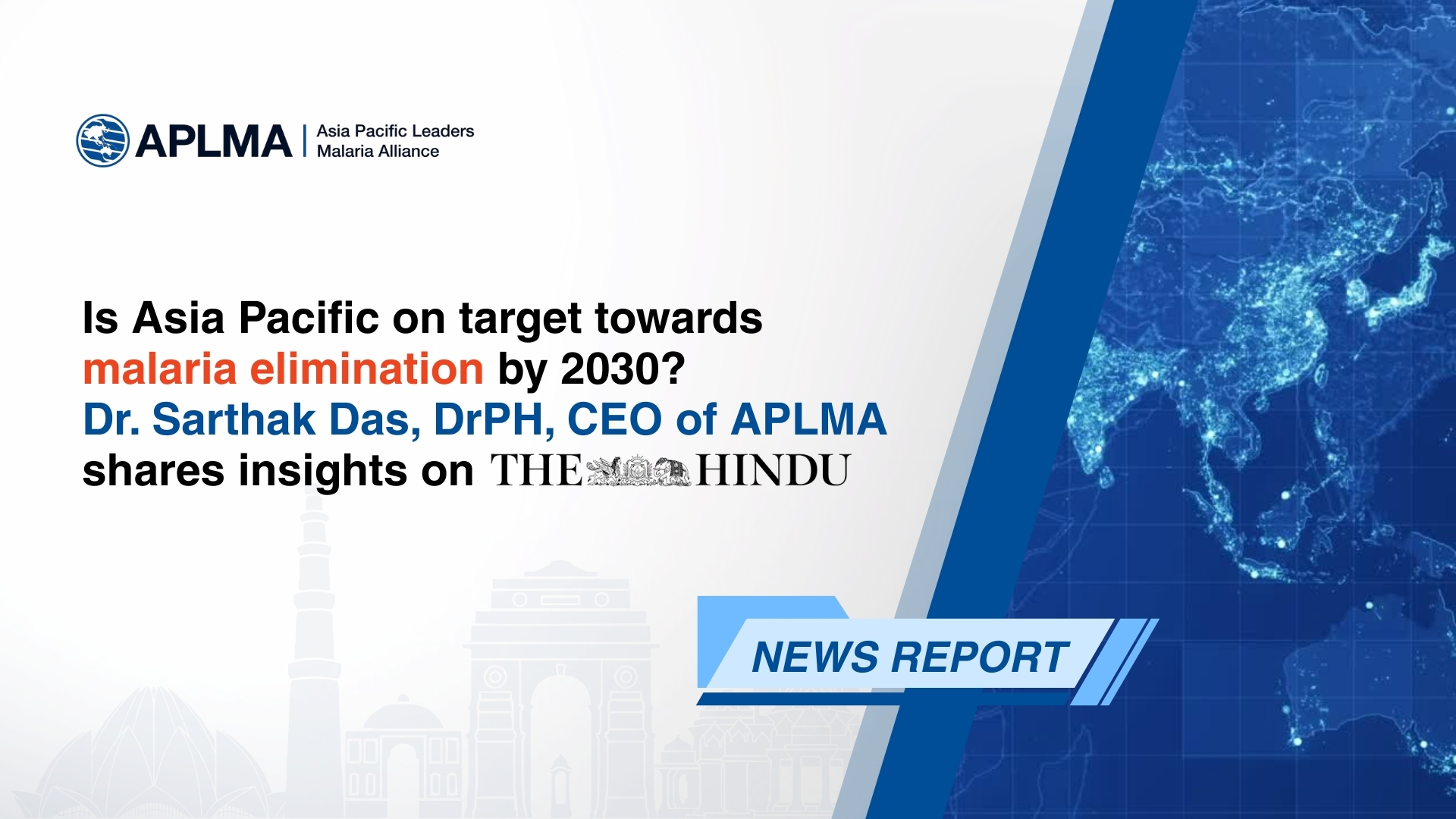
SINGAPORE, 16 November 2020 - In an unprecedented show of regional solidarity, Asia-Pacific leaders have reaffirmed commitment to the 2030 malaria elimination goal. Together, they welcomed proposed actions at the APLMA Leaders’ Malaria Elimination Roadmap: A 5-year Review of Progress (2015–2019) report, celebrating significant gains against malaria across the region, while global progress has stalled. With COVID-19 altering the public health landscape, , sustaining this momentum is now critical. During the 15th East Asia Summit (EAS), held on 11 November 2020, the region’s leaders reaffirmed their resolve to a coordinated response for ending malaria, as a public and regional health security priority.
The report calls for decisive action and warns against complacency, in order to sustain efforts against malaria over the next five years and to ultimately eliminate malaria for good across all Asia Pacific nations by 2030. Hosted by the Government of Viet Nam, the EAS virtual meeting brought together Heads of States from 18 Asia Pacific nations calling for accelerating progress against malaria and scaling up activities in high burden countries. The senior officials and country malaria leaders had also reaffirmed their commitment and echoed a call for increased collaboration and capacity building efforts during the 5th APLMA Senior Officials’ Meeting (SOM) and Malaria Week 2020 in September. The officials highlighted the critical need for not only an end to malaria, but also the essential health resources required to bend the COVID-19 curve, as well as fight other infectious disease threats in the future.
The report highlights several key successes resulting in a growing number of countries across Asia Pacific nearing elimination. Since 2018, there have been no human cases in Malaysia and Timor-Leste, no deaths in Cambodia and only a handful of indigenous cases in Bhutan. Myanmar has more than halved cases in just three years, and India reported the largest reduction in cases (49%) in one year among all high-burden countries globally. The Greater Mekong Subregion (GMS) is also turning the tide with drug resistance, following significantly increased investment and rotation between therapies. The successes are attributed in great part to significantly increased domestic funding, data-driven responses including investment in solutions, and decisive actions taken by regulatory authorities to prevent, test and treat the disease.
While the success in the GMS is notable, vast challenges remain particularly in Indonesia, PNG and across this South Asian subcontinent. The goal of elimination remains central; however, it is equally important for us to face the reality that there are places in the region where we must focus on malaria control first.
“APLMA remains deeply committed to supporting country leadership and the Region in our collective efforts towards malaria elimination. While the pandemic has posed obstacles for sustaining momentum, there is tremendous resolve,” commented Dr Sarthak Das, Chief Executive Officer, Asia Pacific Leaders Malaria Alliance (APLMA). “Moving forward, we need to not only ensure that near elimination countries and their tremendous progress is sustained, we must also redouble our efforts in areas high endemicity, among remote, and vulnerable populations to ensure a path to sustainable elimination.”
In order to keep up momentum, the 5-year Review of Progress report calls for doubled efforts to reach our elimination goal by 2030, through:
- Decisive leadership – Leaders both at the national and sub-national level must identify with, and drive malaria elimination, as an historic endeavour with far-reaching benefits
- Sustained financing – Mobilise additional domestic resources; integrate vertical disease programs in health systems; ensure that all health funding is recorded on budget; continue exploring alternative financing mechanisms
- Universal coverage – No one left behind, with strong, data-driven strategies to tackle malaria everywhere; strong systems to bring new commodities and the private sector in to help achieve our goals.
These are not mere concepts but provide key guidance on tangible strategies for implementation. Building strong community engagement particularly for the vulnerable populations, effective supply chain management, strengthening local surveillance and capacity are prerequisites of malaria elimination and addressing COVID19. Decisive and inspiring leadership is crucial to ending malaria, but it is not sufficient without increased financing, regional collaboration, improved access to health services. COVID-19 presents an unprecedented opportunity for governments to increase their investment in the health sector. Continued focus on malaria elimination will not only ensure we can end this preventable disease but also enable us to effectively tackle new and emerging health threats.
The full report and supporting case studies can be viewed at the following LINK.
- Ends –
About the Asia Pacific Leaders Malaria Alliance
The Asia Pacific Leaders Malaria Alliance (APLMA) is an affiliation of Asian and Pacific Heads of Government, formed to accelerate progress against malaria and to eliminate the disease in the region by 2030.
About the Asia Pacific Malaria Elimination Network
The Asia Pacific Malaria Elimination Network (APMEN) is a network of countries and stakeholders in the Asia Pacific region, that are committed to working towards malaria elimination. The Network acts as a platform to allow collaboration and exchange between regional malaria control programs and a range of international elimination partners from the academic, non-governmental and private sectors, as well as the World Health Organization (WHO).
Contacts:
- Janice Apilado – Communications Manager, APLMA; E: japilado@aplma.org T: +65 98830366
- Navreet Dhillon – GCI Health; E: navreet.dhillon@gcihealth.com T: +65 9010 1795
.svg)




.jpg)




